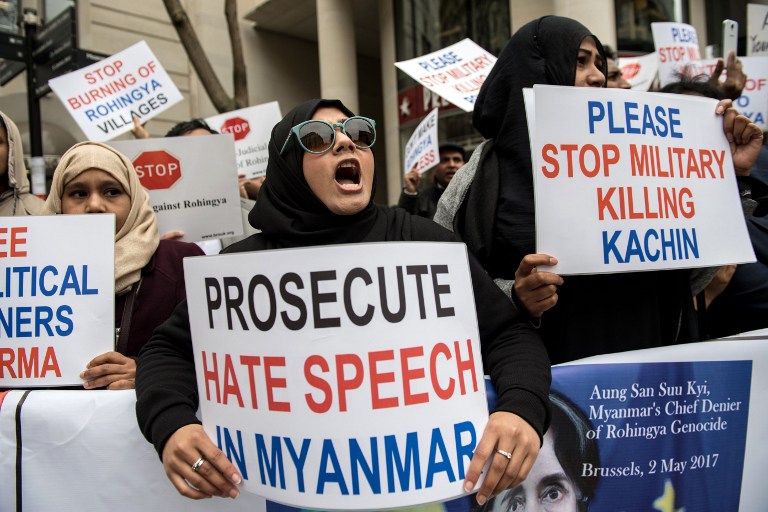More than 150 civil society organizations are protesting what they call discriminatory language in elementary school curriculum in public schools in an open letter sent to the Ministry of Education, a copy of which was seen by Coconuts Yangon.
Specifically, the 157 civil society organizations have taken issue with a line in a poem titled Becoming Happier and Cheerful contained in a textbook for third graders. It reads: “We hate mixed blood, they will end our race,” a seeming indictment of intermarriage.
In the letter, which was also sent to Aung San Suu Kyi, State Counselor and de facto leader of Myanmar and U Win Myint, the president of Myanmar, the civil society groups, including Equality Myanmar and others, criticized the national elementary curriculum for discriminating against minority religions and ethnicities.
“We are deeply troubled by discriminatory language in your curriculum that can be interpreted as divisive and oppressive against different ethnicities and religions,” the letter reads.
The letter goes onto ask the ministry to reassess its curriculum and revamp it to be non-discriminatory towards religion, race and ethnicity.
Responding to the letter in an interview with The Irrawaddy, Deputy Minister of Education U Win Maw Tun seemed caught off guard, insisting that discrimination is non-existent at the ministry.
“The Ministry doesn’t discriminate against gender, religion or skin color,” he told the paper. “We need to ask the National Curriculum Committee to review this case. Only after they’ve reviewed everything can we take some form of action to address this issue.”
Race and religion are deeply complicated issues in Myanmar, where they have been a fixation of government policy for decades.
Since Myanmar’s independence, rival ethnic groups have taken up arms in open rebellion to the majority Bamar government, asserting their rights of political freedom and self governance, in a civil war that is the longest such ongoing conflict in the world.
A 1982 citizenship law created under the socialist rule of General Ne Win was meant to address some of these issues, enshrining the “national races” as full citizens, though even that famously excluded those not recognized as “indigenous” to Myanmar, notably the Rohingya Muslims, which the UN has accused the government of “ethnically cleansing” from Rakhine State.
Bertil Linter, Swedish journalist, author, strategic consultant and expert on Myanmar has blamed the long-standing policies of successive governments for irreversibly damaging ethnic relations in Myanmar and further marginalizing the ethnic people struggling for basic human rights.
In an Asia Times piece, Litner wrote that “successive military leaders have belittled, denied and squelched the grievances of ethnic minorities, including chronic complaints of military abuses and insensitivities that have perpetuated armed conflict.”





Reader Interactions